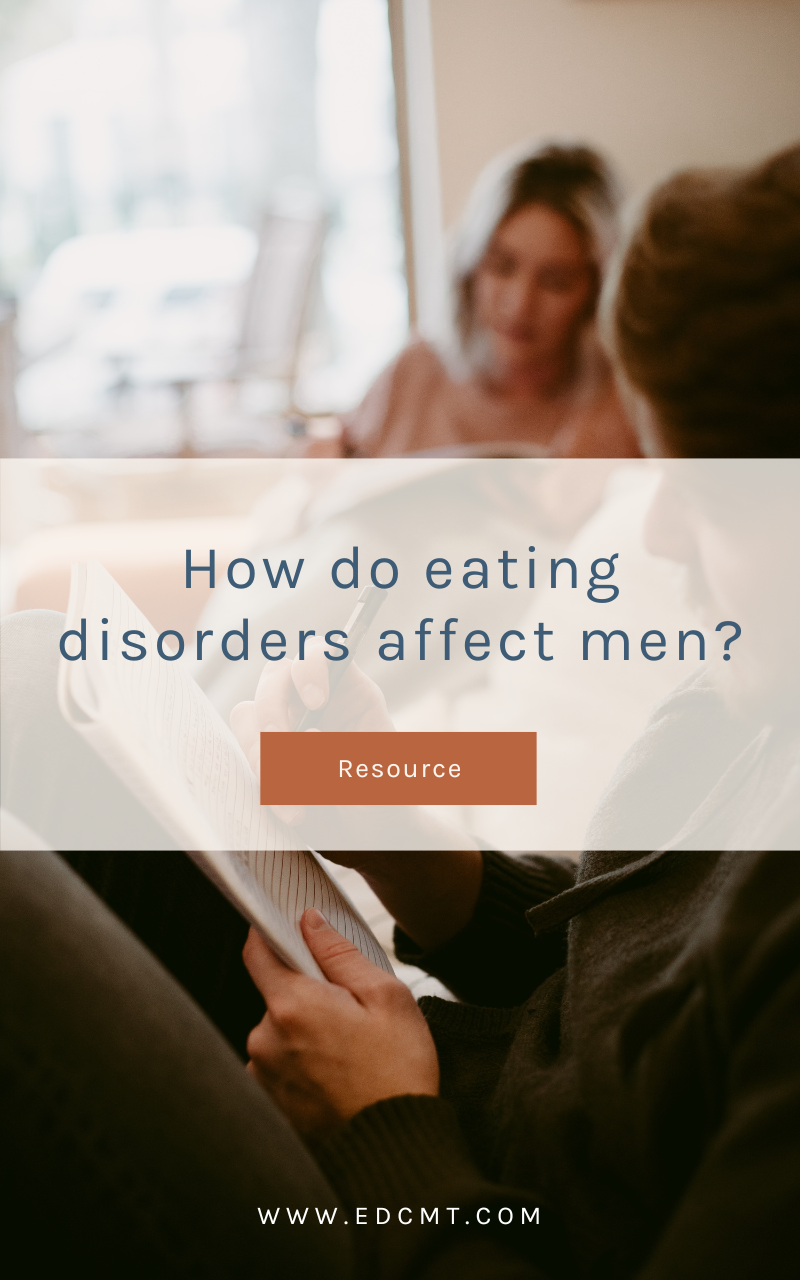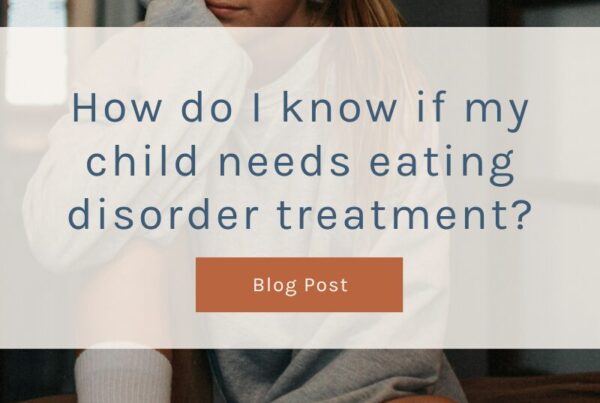
Though most studies and publicity about eating disorders are focused on women and girls, eating disorders affect men and boys also, often quite seriously. One study found that men make up 25% of an anorexia nervosa diagnosis, and a combination of studies found that 40% of those with binge-eating disorders are men. Because so much of the conversation about eating disorders and body image are focused on women, men can actually be at a higher risk for dying from their eating disorders, as it is often assumed, even by medical providers, that men aren’t impacted by them. Even diagnostic guidelines in past versions of the Diagnostic and Statistical Manual of Mental Disorders (DSM IV) have perpetuated the stereotype that men don’t experience eating disorders, by having criteria such as amenorrhea, or the loss of menses, which only applies to those with uteri.
According to one study, 37% of boys in larger bodies were teased about their weight by peers and family members. Body-shaming and weight stigma often predicts weight gain, binge-eating, and extreme weight control measures, which can in-turn trigger eating disorders.
Since eating disorders in men is not something that is often talked about, many men don’t associate their behaviors with a mental disorder, but eating disorders are a mental illness, and no matter the gender, they are typically triggered by stress, anxiety, trauma, or depression. Dave, a former patient of the Eating Disorder Center of Montana (EDCMT), talks about how he always knew that he had a difficult relationship with food, even as a kid, but didn’t have the words or knowledge to know what the problem was. He mentions that there seems to be this stereotype that eating disorders are something that only affect “young gymnasts” and is something that they grow out of, so when men are struggling with eating and body image, it can seem unbelievable.
Additionally, there are other factors that contribute to eating disorders in men, such as pressures to get bigger in the gym or to take extreme weight loss measures for sports. “Bigorexia”, also known as Muscle Dysmorphia, is a preoccupation with feeling inadequately small or wanting to become more muscular. It is associated with dissatisfaction with one’s body, and a fixation on weightlifting to gain muscle, as well as an obsession with food, exercise, weight, and/or appearance that disrupts daily life.
For those in sports that have an emphasis on weight or size, like weightlifting, bodybuilding, wrestling, or football, behaviors like “bulking”, “cutting”, and “cheat meals” all might be regular occurrences. These are phrases that have been made to seem normal, or even healthy, by fitness influencers and instructors. But these practices, just like purging, restricting calories, or other eating behaviors that are known to be dangerous and disordered, can be extremely debilitating, impacting mental health , causing social isolation, and serious physical health complications.
When Dave started cutting weight for powerlifting in junior high school, he fell into the binge/restrict cycle. Later, when he went into a career in cycling and the outdoor industry, he felt so much pressure to be lean, despite not having a naturally lean body type. Even when he was in the throes of his eating disorder, he never felt lean enough to fit into the industry and activities he did. He says, “I would get so many negative comments from friends and coworkers about my body, it was crazy. I thought I was doing the right thing, by being in the outdoor industry, and thought that I would have this extrinsic motivation to get in shape.” But it wasn’t working. It wasn’t solving his issues with food.
When Dave finally reached out to find a higher level of treatment for his eating disorder he was 50-years-old and he felt desperate and discouraged. Treatment felt like a last resort at the time, but it was necessary for him to find his way. He said that he wants more men to know that you don’t have to hit rock bottom before getting support. He wants men to know and believe that they can get help.
Though messages about mental health have become increasingly more popular, these ideas don’t often feature men, but rather focus on women or androgynous cartoon characters. This leaves men out of the conversation about mental health, and ignores their very real concerns about feeling like their bodies should look a certain way to be “healthy,” or “fit”.
Dave shares that treatment at EDCMT was “amazing”. But the first day was one of the scariest days of his life. Being the only man in treatment meant that for the first time he was “the other”, and he didn’t feel like he fit in. Although this was a really hard part of treatment for him, it turned out to be a really important part. Dave notes that he learned how to listen, and give space and take space, receiving support from the other patients. The types of relationships he built during treatment were unexpected, and long-lasting.
People can be healthy at all sizes. They can also be unhealthy—physically and mentally—with six-pack abs or large muscles. If you are struggling to feel comfortable in your body, challenge yourself by considering whether that is a sign to push harder at the gym, or is it a sign to give yourself some compassion. Remember that the shape and size of your body is not fully within your control. You do not have to go to extreme measures with your diet, supplements, or workouts to feel good in your body. And you are deserving of treatment if you are struggling with your relationship with food and body—no matter your gender. Contact us today to get started.
- Mond, J.M., Mitchison, D., & Hay, P. (2014) “Prevalence and implications of eating disordered behavior in men” in Cohn, L., Lemberg, R. (2014) Current Findings on Males with Eating Disorders. Philadelphia, PA: Routledge.
- Golden, N. H., Schneider, M., & Wood, C. (2016). Preventing Obesity and Eating Disorders in Adolescents. Pediatrics, 138(3). doi:10.1542/peds.2016-1649
- Golden, N. H., Schneider, M., & Wood, C. (2016). Preventing Obesity and Eating Disorders in Adolescents. Pediatrics, 138(3). doi:10.1542/peds.2016-1649




